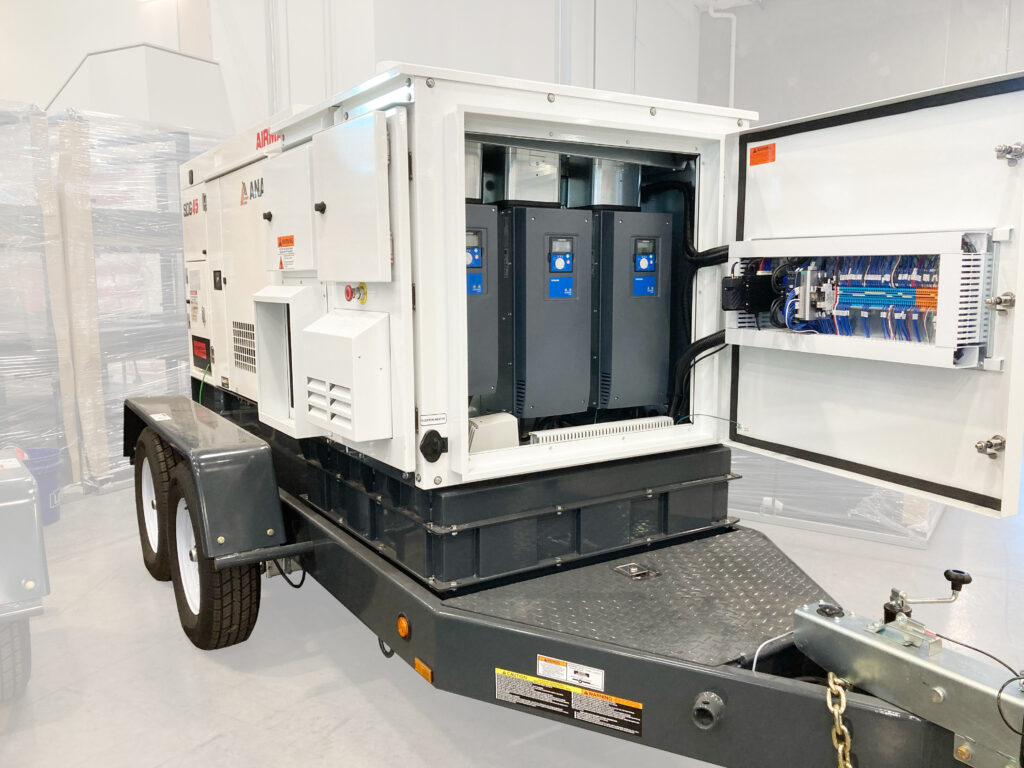Once viewed primarily as a utility-side component, inverters are now at the center of innovation for Smart Inverter Technology for Tomorrow’s Hybrid Power systems. They are crucial for distributed storage and remote power infrastructure.

As the global demand for flexible and resilient power solutions intensifies, inverter technology is stepping into the spotlight. Once viewed primarily as a utility-side component, inverters are now at the center of innovation for hybrid energy systems. They also play a key role in distributed storage and remote power infrastructure.
With a robust foundation in electrical engineering and extensive experience in power electronics, I have dedicated my career to advancing inverter technologies that support the evolution of hybrid energy systems. Smart technology is crucial for tomorrow’s hybrid power solutions, and my work has focused on developing and deploying inverter solutions that integrate seamlessly with various power sources. These efforts enhance efficiency and reliability across diverse applications. This hands-on experience has provided me with a clear understanding of how inverter technology is transitioning from a supporting role to a vital component of modern energy strategies, particularly within hybrid markets.
From Conversion to Coordination
Today’s inverter systems go far beyond basic power conversion. The latest generation of smart inverters acts as the central coordinator in hybrid energy setups. These systems manage the interaction between generators, battery storage, renewables, and grid input to deliver clean, stable, and optimized power.
Their role has evolved into one of system intelligence. Future hybrid power systems depend heavily on smart inverter technology to coordinate real-time load balancing, frequency control, and performance optimization. This helps them operate more efficiently, reduce emissions, and lower fuel consumption.
Hybrid Systems Thrive with Smarter Inverters
In remote and off-grid markets, traditional power solutions that rely heavily on fuel-based generators are rapidly being reconsidered. In these environments, inverter technology becomes the key to moving from reactive to proactive power management.
When specifically designed for hybrid applications, inverter systems allow for seamless transitions between power sources. This improves uptime and extends the life of both batteries and mechanical assets. The shift toward smarter inverters is already advancing across critical sectors such as construction, telecommunications, mining, and emergency response. Utilizing smart inverter technology is crucial for tomorrow’s hybrid energy systems, where power reliability is essential. Any downtime can come at an inflated cost.
Reliability in the Harshest Environments
One of the most valuable yet overlooked strengths of industrial inverter systems is their durability. High-quality inverters are built to withstand extreme temperature changes, airborne debris, and voltage fluctuations. They can also handle unpredictable load conditions, all while maintaining stable power output.
In field applications, we have seen inverter systems deliver long-term, reliable performance in some of the most demanding and remote settings. Smart inverter technology for tomorrow’s hybrid power scenarios ensures durability and stability. This occurs as distributed systems are deployed in more challenging and mission-critical environments.
Modular Growth and Energy Independence
Another major advancement in inverter technology is the ability to scale systems using modular, parallel architecture. With the right design, users can increase energy capacity over time without the need to overhaul the entire system. This allows operations to start small and grow into microgrid or utility-scale deployments.
Modular design gives organizations the flexibility to build power systems that evolve alongside their operations. Embrace smart inverter technology for tomorrow’s hybrid power, it supports long-term planning while minimizing unnecessary complexity or investment upfront.
Standardized, smarter energy distribution
The industry is moving toward standardized energy frameworks that emphasize interoperability, real-time diagnostics, and easy integration. Inverter technologies are at the heart of this transformation. They are enabling systems that not only deliver energy, but also provide intelligence, communication, and adaptive performance.
This shift highlights smart inverter technology as an integral part of tomorrow’s hybrid power markets, putting it at the center of that evolution. As global power needs continue to shift, so must the technologies that supply it. I believe inverter systems will remain a critical force in defining how we build smarter, cleaner, and more scalable energy solutions for the future.
Travis Waineo is energy storage product manager at ANA Inc. He has extensive experience in developing and deploying inverter-based power systems. His work spans hybrid, remote, and distributed energy applications throughout North America and international markets.

